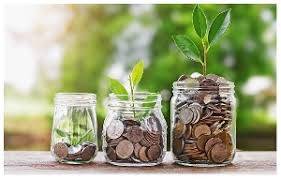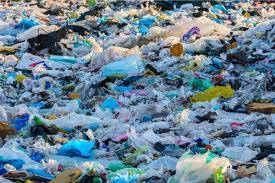“Plastic Is Everywhere—And Honestly, It’s Grossing Me Out”
It hit me while I was walking to get waakye.
I’d taken a shortcut behind a school building—one of those narrow, dusty footpaths between a cement wall and someone’s backyard garden—and I had to literally step over a sea of plastic. Empty water sachets, broken takeaway packs, torn-up shopping bags. It was like the trash had formed its own little army and declared war on the soil.
And right there, balancing over garbage just to get some breakfast, I said out loud to myself:
> “This is out of control.”
It’s Not Just Trash—It’s a Symptom
You see, in Ghana (and I know we’re not alone), plastic has become part of the background. Like trotro horns or “Dumsor.” You just accept it. You don’t question why the gutters are choked, or why the beach looks like someone dumped a landfill there. You just step over it. Every. Single. Day.
But now, NGOs are raising their voices again, and this time it feels different. There’s this urgent call:
> “Let’s end plastic pollution.”
And yeah, that sounds huge. Kinda impossible. Like telling everyone to stop breathing air. Because how do you even start getting rid of something we literally use for everything?
The Plastic Trap We’re All In
I’m not gonna lie—I still buy sachet water. I still use black rubber bags. I still grab that chilled Coke in a plastic bottle when I’m too tired to care.
But in my experience, most of us aren’t careless because we’re evil. We’re careless because we don’t know what else to do.
Ever tried shopping at a market with your own container? They’ll look at you like you’re trying to steal the kontomire.
Tried refusing a plastic straw at a roadside juice stand? They’ll poke the drink for you before you can even say “no, I’m good.”
We’re trapped in a system that makes not polluting feel like a hassle. And that’s a problem.
But Here’s the Thing…
It’s getting worse. Like, visibly worse.
Last week, I saw a little kid fishing a toy out of a flooded gutter filled with floating trash. He didn’t even flinch. It was just... normal to him.
And that’s what really scares me—not the plastic itself, but how numb we’ve become to it.
We’ve normalized the destruction. We’ve made peace with poison. And that? That’s heartbreaking.
I Could Be Wrong, But…
Maybe I’m overthinking it. Maybe it’s just trash, and I should move on with my life.
But here’s what I’ve noticed lately: no one else is going to fix this unless we start pushing back.
And when NGOs shout “Let’s end plastic pollution,” they’re not just talking to politicians or companies.
They’re talking to me. To you. To the woman selling roasted plantain on the corner. To the guy delivering your banku in a takeaway bowl.
Because change doesn’t start at the top. It starts at the trash can. Or rather—at choosing not to create trash in the first place.
So… What If?
What if we actually listened this time?
What if, instead of laughing at the person with the reusable tote bag, we joined them?
What if we pressured shops to stop handing out rubber like party favors?
What if our kids grew up thinking clean gutters and clear beaches were the norm—not the dream?
-Final Thought (Because I Can’t Unsee It Now)
That waakye I bought? Delicious.
The plastic bowl it came in? Still sitting in my kitchen sink. I didn’t even use it again.
It’s weird how something that only served me for 15 minutes might outlive me by 500 years.
So now I’m asking myself:
Am I really okay with leaving behind a world covered in trash... just because it’s convenient?
And I hope you’re asking yourself that too.
Because if we don’t end plastic pollution now, it’s going to end something else:
Our beaches.
Our health.
Maybe even our future.
Let that sink in—like that plastic bag did into the soil I stepped over.


